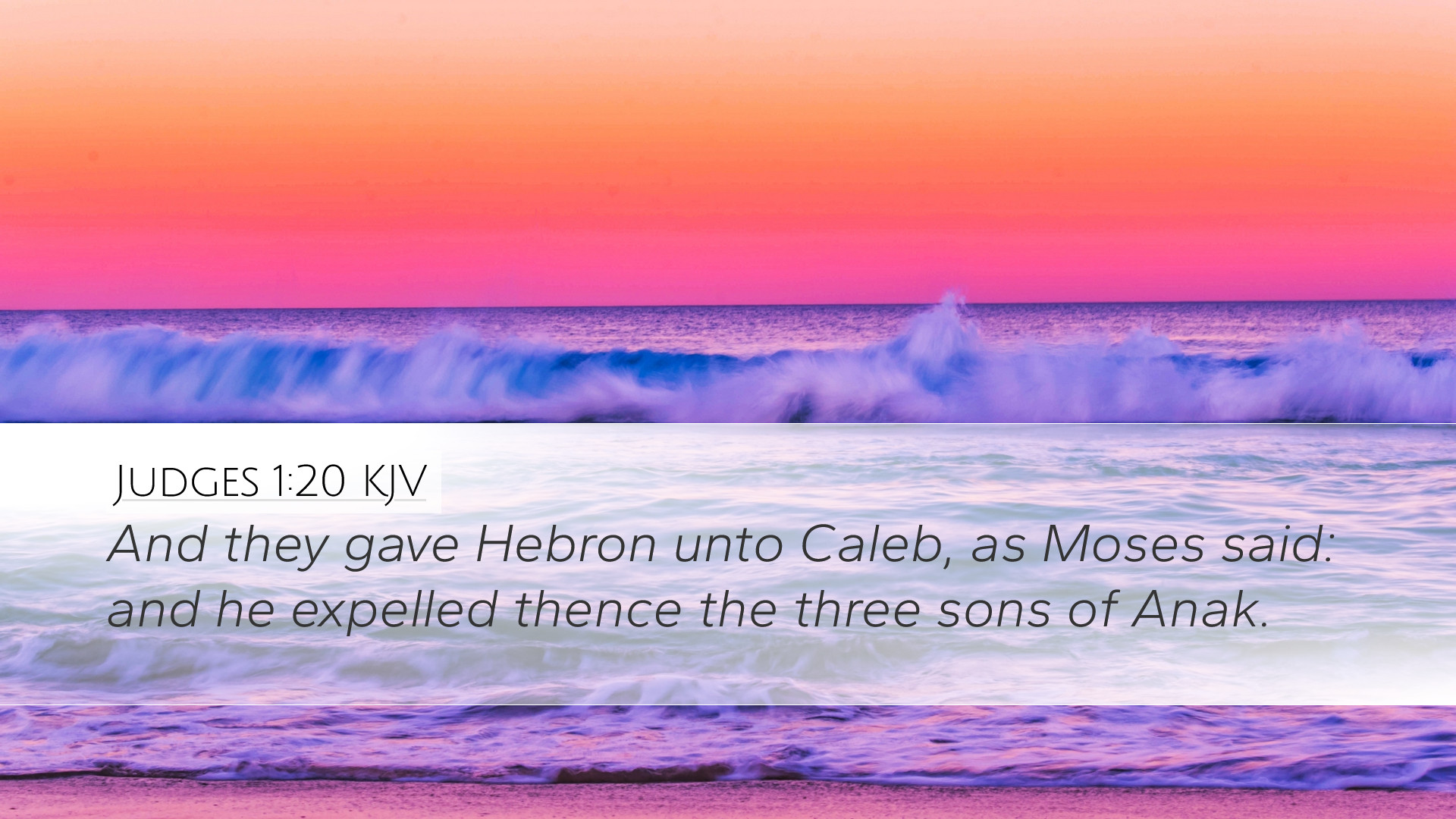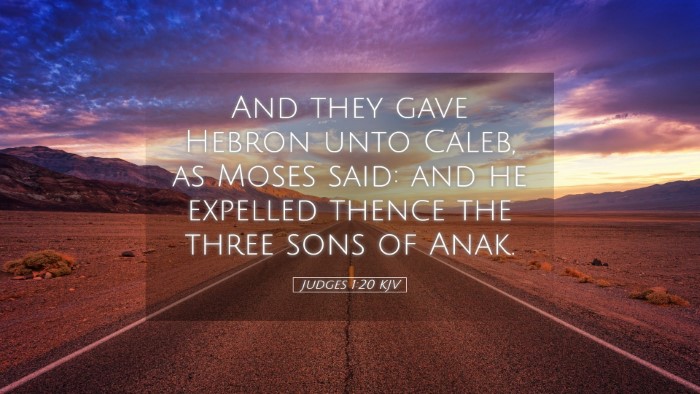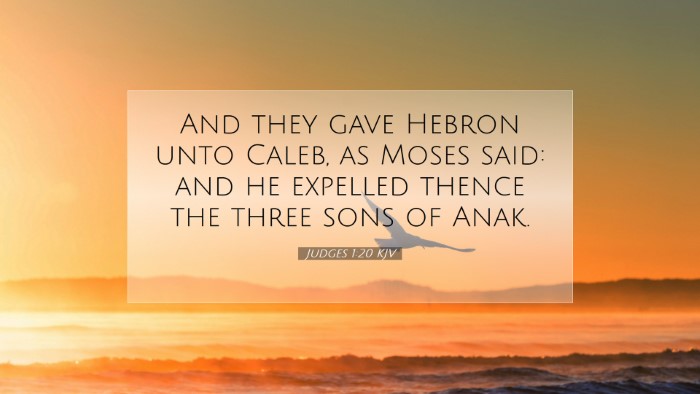Bible Commentary on Judges 1:20
Judges 1:20 states: "And they gave Hebron unto Caleb, as Moses said: and he expelled thence the three sons of Anak." This verse serves as a momentous testimony to the fulfillment of God's promises and the inheritances allotted to the tribes of Israel, particularly highlighting Caleb's faithfulness and strength.
Context and Background
The Book of Judges presents the era after the conquest of Canaan and the establishment of Israel’s tribes. This particular verse reflects an important transition from the Exodus to settlement in the Promised Land. The reference to Hebron is significant in terms of both historical and geographical context, as it was a city of refuge and of great importance in the land of Canaan.
Caleb's Legacy
Caleb stands out in the biblical narrative as a model of faith and tenacity. His character is shaped by the following aspects:
- Faithfulness: Caleb was one of the twelve spies sent to scout the land of Canaan and is noted for his unwavering faith in God (Numbers 13-14).
- Courage: He displayed extraordinary courage in expressing confidence in God's promise despite the overwhelming pessimism of the other spies.
- Reward: His steadfastness in faith allowed him to inherit Hebron, a reward for his loyalty to the Lord and to Moses.
The Significance of Hebron
Hebron, originally known as Kiriath-arba, was named after Arba, the greatest among the Anakim (an imposing race of giants). Caleb’s conquest of this city demonstrates the power of faith over fear, and it epitomizes:
- A Promise Fulfilled: This fulfills God’s promise that Caleb would receive an inheritance because of his faithfulness (Numbers 14:24).
- Victory Over Giants: Caleb’s effort in expelling the Anakim symbolizes overcoming formidable challenges through divine strength.
- Spiritual Battle: This narrative illustrates the spiritual battles believers encounter; Caleb serves as a spiritual archetype for Christians facing trials in their own lives.
Commentary Insights
Insights from respected commentators enhance our understanding of this verse:
Matthew Henry
According to Matthew Henry, this verse highlights the importance of acknowledging God's promises and acting upon them. Caleb's dedication serves as an inspiration for believers, showing that the inheritance of God's promises often requires faith and effort. He comments on how Caleb’s victory over the Anakim exemplifies steadfast faith against overwhelming odds.
Albert Barnes
Albert Barnes elaborates on the blessing that Caleb received in Hebron. He points out that Caleb at 85 was still a warrior, proving that spiritual vitality does not diminish with age. Barnes emphasizes that Caleb’s persistence and strong faith in God’s enabling power resulted in not just personal victory but also an inheritance that would benefit future generations.
Adam Clarke
Adam Clarke brings attention to the significant cultural and historical elements related to the land of Hebron and the Anakim. He notes that despite the challenges posed by these giants, Caleb was driven by a divine promise. Clarke underlines how Caleb's actions serve to encourage believers to confront their adversities with faith.
Theological Implications
The implications of this verse extend into broader theological themes:
- Divine Sovereignty: This passage reaffirms God’s sovereign plan in guiding Israel to inherit the Promised Land, underscoring the belief that God fulfills His promises in His timing.
- Faith in Action: Caleb’s story exemplifies how faith must be accompanied by action; believers are encouraged to enter into their inheritance actively.
- Encouragement: The narrative encourages believers today to remain steadfast in faith, trust in God's promises, and rise against their own "giants."
Application
Pastors, students, and theologians can draw several applications from Judges 1:20:
- Inherit Your Promises: Just as Caleb inherited Hebron, Christians are called to claim the promises offered to them through Scripture.
- Overcoming Fear: The verse encourages believers to confront their fears with courage, trusting God to guide them through daunting challenges.
- Legacy of Faith: Caleb’s faith is a profound example for the church today, reminding us that our faith can influence and inspire future generations.
Conclusion
In Judges 1:20, Caleb's expulsion of the Anakim from Hebron stands as a testament to God’s faithfulness and the blessings that come from unwavering faith. Through the insights of various commentators, we find profound encouragement to embrace our spiritual inheritance and face our giants with confidence derived from a trust in God’s promises.


